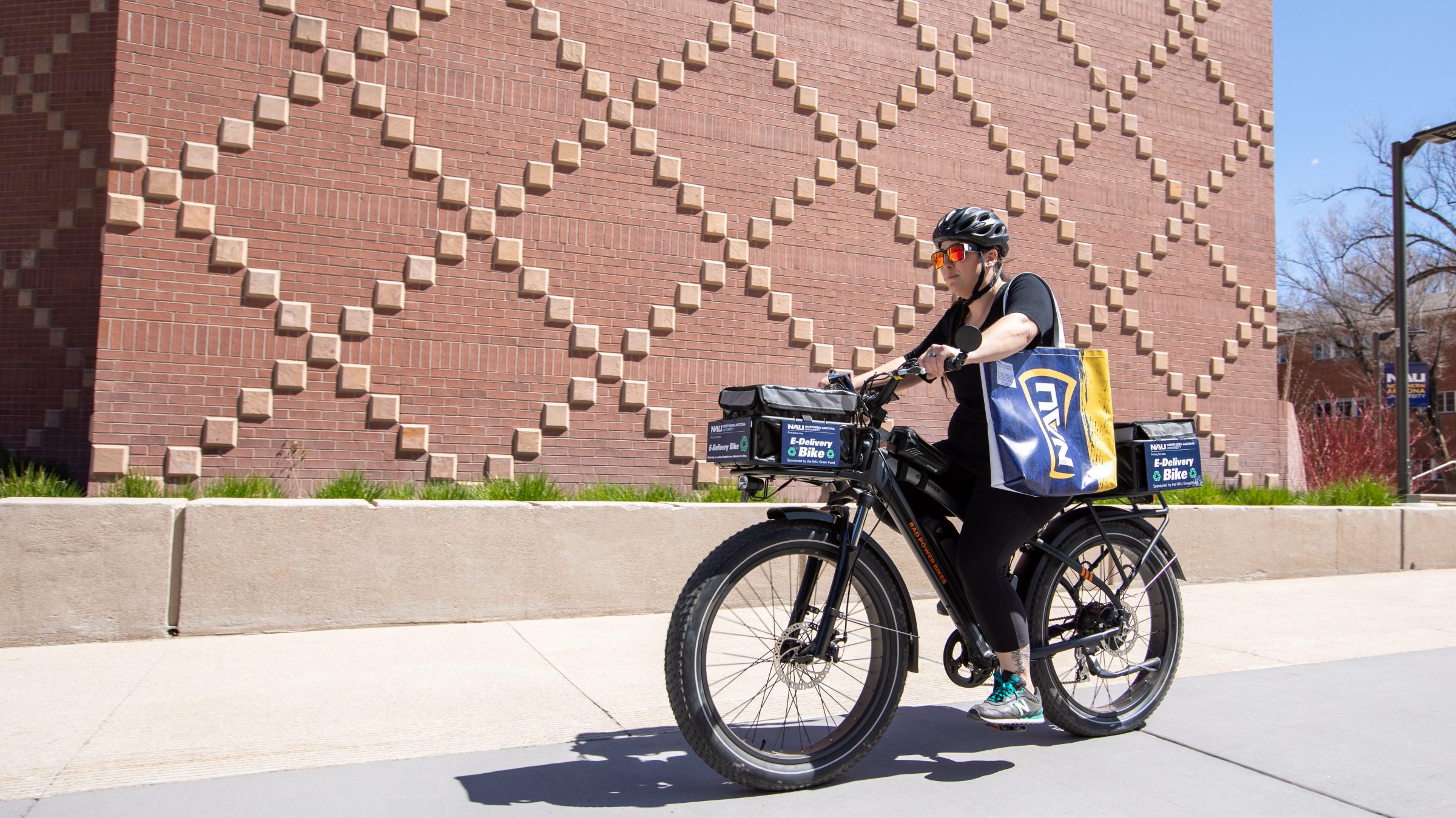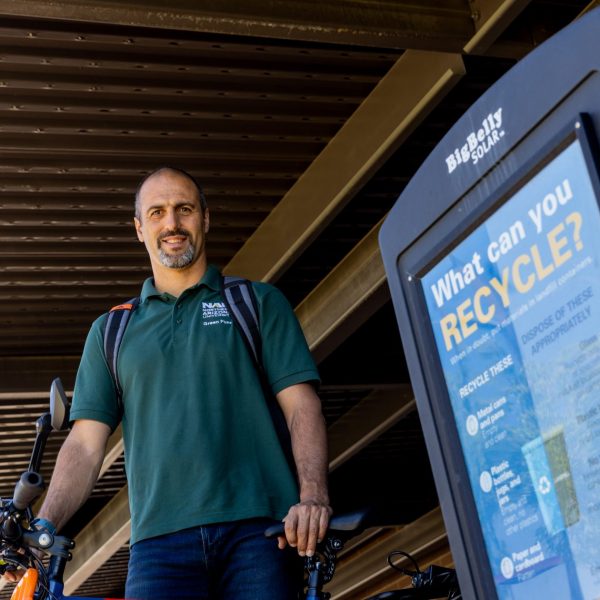
If you are on Northern Arizona University’s Flagstaff campus, you might see one of the new electric utility vehicles (EUV) zipping off to one building or another.
A little bigger than golf carts, and more rugged, these EUVs are workhorses carrying Facility Service’s carpentry and general maintenance crew and their equipment around campus. Stephanie Bauer, associate vice president of facility and maintenance explains that “Each day, our technicians travel all over campus responding to urgent and critical work requests, as well as work on planned projects.” The EUVs are also playing a part in helping NAU reach its goal of carbon neutrality by 2030.
To work toward this goal, NAU sustainability staff and students developed a Climate Action Plan (CAP) outlining steps the university should take. In the section “Electrifying NAU’s fleet and eliminating emissions,” the CAP outlines expectations of gradually integrating more electric vehicles into NAU’s fleet as gas vehicles need replacing.
Bauer says they are looking to replace approximately 90 gas vehicles remaining in their fleet. “Our average age of older vehicles is 23 years old,” Bauer says. “Unfortunately, we don’t have much of a budget to replace them each year, so we try to chip away where possible.” Facility Services purchased its first EUV in 2021. Last year, they received $160,000 from NAU’s Green Fund to buy five more.
NAU’s Green Fund
The Green Fund is student-powered. Students pay a student-approved, mandatory $15 green fee each semester. This fee generates approximately $600,000 each year for funding sustainability projects. A committee of eight students, guided by four faculty and staff advisors, reviews submitted project proposals and decides whether they align with NAU’s CAP or sustainability stewardship priorities. Since the fund started in 2010, $3 million has been invested in more than 110 projects—everything from a solar panel array on the parking garage to renovating a sustainable food garden.

In addition to the five EUVs, the Green Fund has supported other projects to electrify equipment or vehicles. In 2020, Printing Services received an electric bicycle to complete campus deliveries. In 2023, the Facility Services groundskeeping crew purchased electric push mowers, trimmers, and other groundskeeping equipment with the goal of ultimately replacing all of its gas-powered equipment.
Electric vehicles: long-term payoff
In the short term, Bauer explains that maintaining her existing fleet of gas-powered vehicles is more fiscally manageable than replacing them all at once with electric vehicles. However, her goal is to have a cost-effective way to replace the fleet. “With less maintenance and no fuel costs, the EUVs are significantly more affordable and cost-effective than traditional gasoline-powered vehicles in the long term. These EUVs require only $0.03 of electricity costs per mile to operate, while the current gas-powered vehicles range between $0.37 per mile to $1.22 per mile to operate,” Bauer says.
And for the environmental benefit? Bauer expects to avoid over 8,000 pounds of carbon dioxide emissions each year by using these six electric vehicles.





